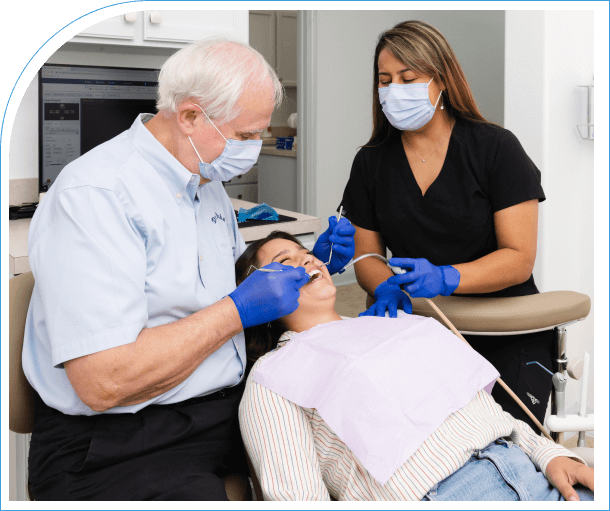What Is Root Canal?
Root canal treatment is a tooth restoration technique that helps restore the functionality and appearance of a severely infected or damaged tooth. This treatment is required when the soft pulp at the tooth's center gets seriously infected or swollen due to severe decay or the cracking or chipping injury of the tooth
Book Now
What Conditions Require a Root Canal Treatment?
When a tooth gets infected, the infection could spread to the tooth's root. Let us see some of the common signs that indicate the need for root canal therapy.
Tooth Pain
When the pulp within a tooth gets infected, it becomes irritated, causing increased pressure and unbearable pain.
Swelling Gums and Cheeks
If a tooth becomes abscessed, the bacteria might spread to the surrounding gums, resulting in facial swelling.
Foul Taste In the Mouth
Bacteria flourish in the decayed tooth by using sulfur compounds present in the oral cavity. This causes a foul taste in the mouth.
Prolonged Tooth Sensitivity
An infected tooth can cause cracks within the tooth enamel. The substance present underneath the enamel is sensitive to changes in temperature, causing pain in reaction to being exposed to hot and cold foods or beverages.
What Is the Procedure for Root Canal Therapy?
Root canal therapy normally requires you to visit your dentist around three times. During the first visit, the dentist will administer local anesthesia and then make a small hole on the tooth's surface and into the inner chamber. They will extract the decayed tissue, meticulously clean and disinfect the inner chamber, and reshape the small canals. The doctor then packs the chamber with medicated material to prevent infection. The doctor may also temporarily fill the drilled hole until a permanent seal is made with a crown. A permanent restoration is often needed after the root canal. If a crown is required, an impression of the tooth will be made after the removal of the decayed tissue, and the crown is fabricated based on that impression. When the crown is done, it gets bonded into place.
Most patients who have done the root canal procedure at One Health experienced little or no pain and enjoyed a restored tooth that could last a long time
Call Align Dental Care, (972) 503-7444 to schedule an appointment.
